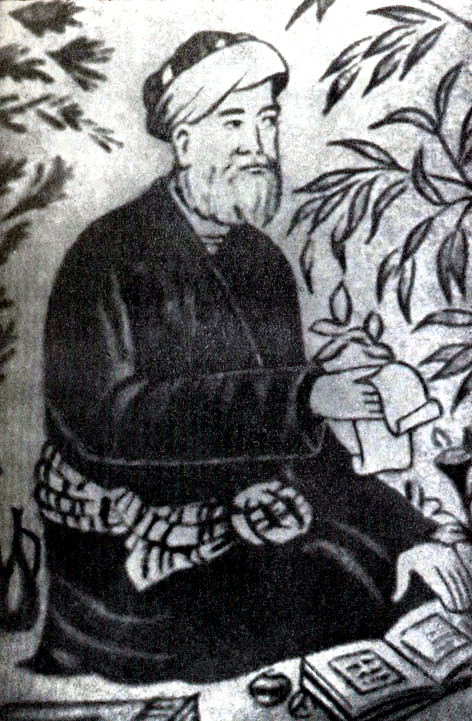“It is best to avoid low company, whether they come in peace or in war.”
An argosy of fables, p. 245
about himself, Extracted from Baharīstān-e- Jami
Nūru'd-Dīn ʿAbdu'r-Raḥmān-i Dschāmi war ein persischer Mystiker und Dichter. Als Sufi gehörte er der Nakschbendi-Tariqa an, die zu jener Zeit in Zentralasien eine politisch und kulturell wichtige Rolle spielte. Seine Ehrennamen „Licht des Glaubens“ und „Säule des Glaubens“ , sein Beiname „mächtiger Elefant“ und sein metaphorischer Name „Herr der Dichter“ spiegeln die Wertschätzung in seiner Zeit. Der bereits im frühen 16. Jahrhundert und dann wieder im späten 18. Jahrhundert gewählte Ehrenname „Siegel der Dichter“ verweist auf seine Rolle als Vollender der klassischen persischen Dichtkunst und nimmt damit Bezug auf die dem islamischen Religionsstifter Mohammed zugeeignete Bezeichnung „Siegel der Propheten“ als Vollender der prophetischen Gottesoffenbarungen. Dschāmi selbst nennt sich in einigen Gedichten „Der Alte von Herat“ . Wikipedia

“It is best to avoid low company, whether they come in peace or in war.”
An argosy of fables, p. 245
about himself, Extracted from Baharīstān-e- Jami
“Good intentions are useless in the absence of common-sense.”
An argosy of fables, p. 240
about himself, Extracted from Baharīstān-e- Jami
“Happy is the man who knows the true from the false, and refuses to accept less.”
An argosy of fables, p. 243
about himself, Extracted from Baharīstān-e- Jami
An argosy of fables, p. 242
about himself, Extracted from Baharīstān-e- Jami
“The wise man refuses to be led beyond his own depth.”
An argosy of fables, p. 242
about himself, Extracted from Baharīstān-e- Jami
Lawāih, p. 20
Lawāih
“I was trapped in love
And this trap is enough for me.”
Haft Awrang, p. 101
Poetry, Poetry from Haft Awrang
“How a pleasant word of an old lover that said
When there is lovem there is no comfort.”
Joseph and Zuleika, p. 254
Poetry, Poetry from Joseph and Zuleika
Joseph and Zuleika, p. 113
Poetry, Poetry from Joseph and Zuleika
Joseph and Zuleika, p. 78
Poetry, Poetry from Joseph and Zuleika
Alluding to Rabia of Basra, Nafahat al-Uns, as quoted in A Literary History of Persia https://www.google.com/books/edition/A_Literary_History_of_Persia/q_n1DwAAQBAJ?hl=en&gbpv=1&pg=PA299 by E. G. Browne, p. 299.